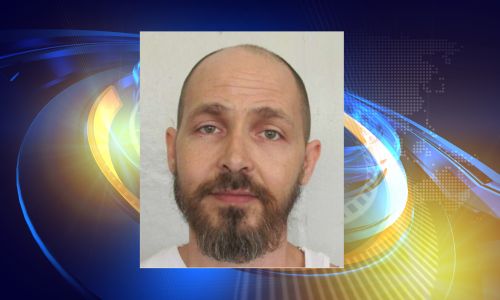Atmore, AL – Carey Dale Grayson was executed Thursday night at the William C. Holman Correctional Facility in Atmore, Alabama, marking the state’s third use of nitrogen hypoxia as a method of execution. Grayson, who was convicted of the 1994 murder of Vickie Lynn Deblieux, was pronounced dead at 6:33 p.m.
Grayson’s execution follows his unanimous death sentence by a jury in 1996 for the brutal killing of Deblieux, a 37-year-old Louisiana resident who had been hitchhiking to her mother’s home. The crime was described by state officials as particularly heinous, involving severe physical abuse, mutilation, and postmortem desecration.
On February 21, 1994, Deblieux accepted a ride near Chattanooga, Tennessee, from Grayson and three others, who had been drinking and using drugs. Instead of driving her to her destination, the group took her to a remote area in Jefferson County, Alabama, where she was attacked and killed.
After Deblieux’s death, her body was thrown off a cliff and later mutilated. Her remains were discovered days later by rock climbers, and forensic examination revealed extensive injuries, including fractures to her skull and face, and over 180 stab wounds.
Grayson and his accomplices were apprehended shortly after the crime. During his trial, the jury convicted Grayson of capital murder and recommended the death penalty.
Alabama Attorney General Steve Marshall issued a statement following the execution, emphasizing that justice had been served after nearly three decades. He expressed sympathy for Deblieux’s family, stating, “My prayer for Vickie’s family is that they can find solace in the State of Alabama finally serving justice for their heartbreaking loss.”
Governor Kay Ivey also commented on the case, calling the crime “heinous” and expressing hope for closure for Deblieux’s loved ones. “An execution by nitrogen hypoxia bares no comparison to the death and dismemberment Ms. DeBlieux experienced,” Ivey said.
Grayson’s execution is the latest instance of Alabama using nitrogen hypoxia as an alternative to lethal injection. Grayson had requested this method, which the state adopted in 2018 as a secondary option for carrying out death sentences.
The execution was conducted after Governor Ivey directed Alabama Corrections Commissioner John Hamm to proceed with Grayson’s sentence and declined to grant clemency.
Grayson’s case highlights ongoing discussions surrounding the death penalty, including methods of execution, the length of time between sentencing and execution, and the emotional toll on victims’ families. As Alabama continues to utilize nitrogen hypoxia, debates over its implementation and ethical considerations remain central to broader discussions about capital punishment.














